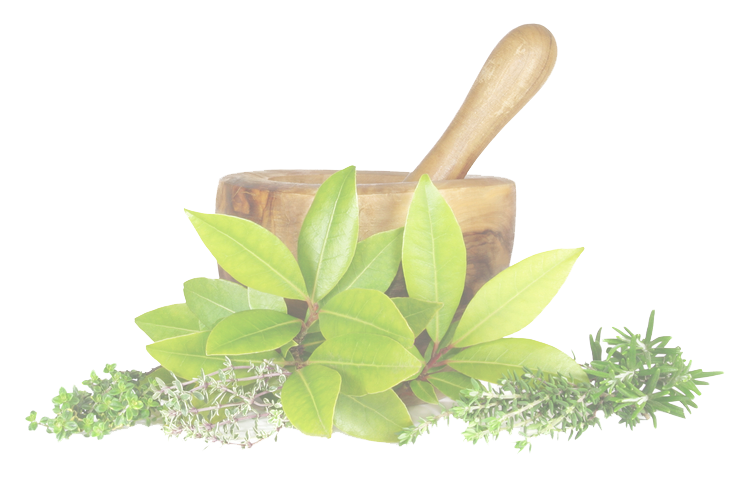According to Ayurvedic principles, diabetes (Madhumeha) is primarily attributed to an aggravation of Kapha and Pitta doshas, which impair pancreatic function, weaken digestion (Agni), and hinder the body's ability to metabolize sugars efficiently. This imbalance may result from factors such as a sedentary lifestyle, excessive intake of sweet and fatty foods, genetic predisposition and mental stress. Ayurvedic treatment for diabetes focuses on restoring balance to the doshas through a combination of dietary modifications, herbal therapies, detoxification (Panchakarma), and lifestyle adjustments. By addressing the root cause of imbalances and promoting holistic health, Ayurveda aims not only to manage diabetes symptoms but also to improve overall well-being and prevent complications associated with the condition.
Common Causes of Diabetes
In Ayurveda, diabetes, referred to as "Madhumeha," is considered a result of imbalances in the body's doshas Vata, Pitta and Kapha. The primary causes of diabetes according to Ayurveda include:
• Dietary Factors:
- Excessive Intake of Sweet and Fatty Foods: Consuming a diet high in sweets, carbohydrates, and fats can lead to an aggravation of Kapha dosha, impairing digestion and metabolism.
- Heavy and Unwholesome Diet: Regular intake of oily and processed foods that are difficult to digest can contribute to the accumulation of toxins (Ama) in the body, leading to metabolic disorders.
Sedentary Lifestyle:
- Lack of Physical Activity: A sedentary lifestyle with minimal physical activity can disturb the balance of Kapha and contribute to weight gain, obesity and impaired glucose metabolism.
• Mental Stress:
- Emotional Stress and Anxiety: Chronic stress, anxiety and negative emotions can affect hormonal balance and disrupt the functioning of Agni (digestive fire), leading to metabolic imbalances.
• Genetic Predisposition:
- Hereditary Factors: A family history of diabetes or genetic predisposition can increase the risk of developing the condition.
• Improper Digestion and Metabolism:
- Weak Digestive Fire (Agni): Digestive fire can lead to improper digestion and assimilation of food, resulting in the formation of toxins (Ama) that obstruct the channels of the body and affect the functioning of the pancreas.
• Imbalance of Doshas:
- Kapha Dosha: An excess of Kapha dosha leads to the build-up of mucus and phlegm, creating blockages in the body’s channels, which disrupts the metabolism of sugars and fats.
- Vata Dosha: Aggravation of Vata dosha can result in dryness and depletion of tissues, affecting the body's ability to regulate blood sugar levels.
- Pitta Dosha: An imbalanced Pitta dosha can cause inflammation and excessive heat in the body, impacting pancreatic function and insulin production.
• Unhealthy Lifestyle Habits:
- Irregular Eating Habits: Skipping meals, overeating or eating at irregular times can disrupt the body's natural rhythm and contribute to metabolic disorders.
- Poor Sleep Patterns: Lack of adequate sleep or irregular sleep patterns can affect hormonal balance and metabolic health.
• Environmental Factors:
- Exposure to Toxins: Environmental toxins and pollutants can contribute to the accumulation of Ama in the body, leading to metabolic imbalances and diabetes.
Ayurvedic Treatment for Diabetes
Ayurvedic treatment for diabetes or Madhumeha, focuses on balancing the body's doshas, particularly Kapha, Vata and restoring proper metabolism and digestion. Here are the key components of Ayurvedic treatment for diabetes:
1. Herbal Remedies
Ayurveda uses various herbs known for their anti-diabetic properties to regulate blood sugar levels and improve overall health.
- Bitter Gourd (Karela): Known to lower blood sugar levels by improving insulin sensitivity.
- Fenugreek (Methi): Helps in lowering blood glucose and improving insulin function.
- Indian Gooseberry (Amla): Rich in Vitamin C, it helps in controlling blood sugar levels.
- Gymnema Sylvestre (Gurmar): Reduces sugar absorption in the intestines and improves insulin secretion.
- Turmeric (Haldi): Possesses anti-inflammatory and antioxidant properties that aid in managing diabetes.
- Neem: Helps in purifying the blood and controlling sugar levels.
2. Dietary Modifications
Ayurveda emphasizes the importance of a balanced diet to manage diabetes effectively.
- Avoid Sugary and Processed Foods: Minimize intake of sweets, sugary beverages, and processed foods that can spike blood sugar levels.
- Incorporate Fiber-rich Foods: Include whole grains, vegetables, legumes and fruits that have a low glycemic index.
- Eat Small, Frequent Meals: Maintain stable blood sugar levels by eating smaller portions more frequently throughout the day.
- Use Spices: Incorporate spices like cinnamon, fenugreek and turmeric in your diet to enhance digestion and metabolism.
3. Panchakarma Therapies
Panchakarma, a set of detoxification therapies, is used to cleanse the body of toxins (Ama) and balance the doshas.
- Vamana (Therapeutic Emesis): Helps eliminate excess Kapha from the body.
- Virechana (Purgation Therapy): Removes Pitta-related toxins from the liver and gallbladder.
- Basti (Medicated Enema): Balances Vata dosha and helps in eliminating toxins from the colon.
- Abhyanga (Oil Massage): Improves blood circulation and helps in detoxification.
- Swedana (Herbal Steam Therapy): Induces sweating to release toxins through the skin.
4. Lifestyle Adjustments
Adopting a healthy lifestyle is crucial for managing diabetes in Ayurveda.
- Regular Exercise: Engage in physical activities such as walking, yoga and other moderate exercises to improve insulin sensitivity and manage weight.
- Stress Management: Practice relaxation techniques like meditation, deep breathing and yoga to reduce stress and balance Vata dosha.
- Adequate Sleep: Ensure 7-8 hours of restful sleep to maintain hormonal balance and support metabolic health.
5. Hydration
- Drink Warm Water: Regular intake of warm water helps in improving digestion and flushing out toxins from the body.
- Herbal Teas: Teas made from herbs like ginger, tulsi and fenugreek can help in balancing doshas and controlling blood sugar levels.
6. Regular Monitoring
- Monitor Blood Sugar Levels: Regularly check blood sugar levels to track progress and make necessary adjustments in the treatment plan.
7. Personalized Treatment
- Consultation with an Ayurvedic Practitioner: Personalized treatment plans based on individual constitution (Prakriti) and current imbalance (Vikriti) are essential for effective management of diabetes.
Sanjeevan Ayurveda & Panchakarma,we are the best Ayurvedic doctor for diabetes in PCMC, Dr. Amit Arun Hirve, offers comprehensive and personalized Ayurvedic treatments for diabetes, By addressing the root causes of diabetes through a herbal remedies, dietary modifications, Panchakarma therapies and lifestyle adjustments, we aim to restore balance to the body's doshas and promote overall well-being. Our treatments not only help manage blood sugar levels but also enhance overall health, preventing complications and improving the quality of life for our patients. Choose Sanjeevan Ayurveda & Panchakarma for a natural and effective approach to diabetes care.

